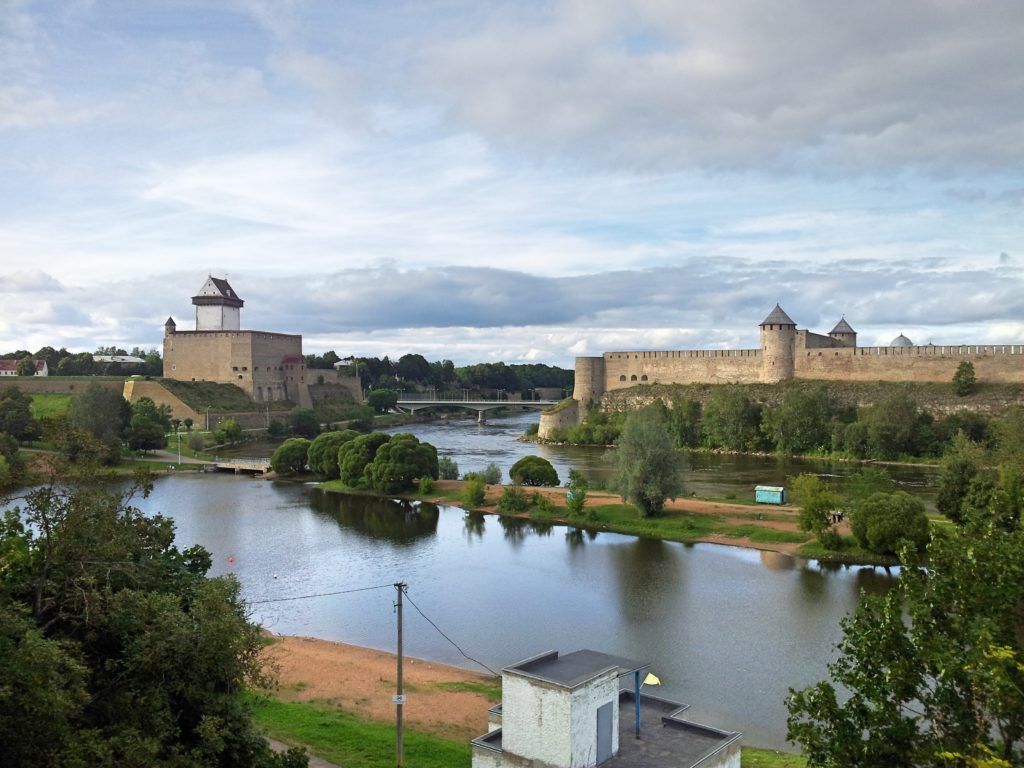The Estonia – Russia ENI CBC Programme
Estonia will have the presidency of the Council of the European Union until the end of the year 2017. It this context, all ENI CBC stakeholders and the European Commission, will meet in Tallinn on 30 November for the annual conference dedicated to the future of cooperation across EU’s external borders. Estonia-Russia is one of the seven programmes ENI CBC has with the Russian Federation.
“If you wish to move mountains tomorrow, you must start by lifting stones today” is written on the home page of the Estonia-Russia Programme’s website. This is a very well organised and clear platform for all people interested by this ENI CBC programme. And yet this African proverb underlines well the many challenges existing between Estonia and its neighbour.
Let’s look at the big picture. Located in the North of Europe, to the south of Finland, the Republic of Estonia is a country of a bit more than 1.3 million Inhabitants that has around 300 km of borders with the Russian Federation on its eastern part. Much of the border is water, passing through the channel of the River Narva and Lake Peipsi/Chudsko-Pskovskoe. Three of the major land routes linking the European Union to Russia go through the border crossing points of Narva-Ivangorod, Koidula-Kunichina Gora, and Luhamaa-Shumilkino. Estonia and Russia also share a long maritime border across the Gulf of Finland.
History has obviously marked the reality of this area. At the border with Russia, in Narva, for example, most inhabitants are Russian speaking. Many people in Narva regularly travel across the border to go to the closest Russian city, Ivangorod. Far away from geopolitical considerations, people living in these bordering regions, whether in Estonia or in Russia, continue their work, their leisure, their life and they need to cooperate with their neighbours.
To address the challenges of the people from these regions, the European Commission in December 2015 approved the programme between the Republic of Estonia and the Russian Federation. 34,2 Meuro, including the co-financing from Estonia and Russia will be dedicated until 2020 to the promotion of socio-economic development in the eligible areas. The programme area covers two distinct territories, namely the southern, northern, and eastern parts of Estonia and two regions in the north-west of the Russian Federation, including the city of St Petersburg.
The preparatory work of the Estonia-Russia CBC Programme started in June 2013 when the first Joint Programming Committee meeting took place. Together, partners from both sides of the border, national stakeholders and regions, agreed to prioritise key objectives for the whole area. The reality of the people living at the borders includes, for example, the finding of solutions to common environmental challenges like preserving the fresh water of Lake Peipsi/Chudsko-Pskovskoe, building up strong cooperation between Estonian and Russian SMEs along the border, continuing the work developed in the previous ENPI CBC Estonia-Latvia-Russia to upgrade the border crossing points so as to reduce the time to cross the border everyday. The programme finally aims at strengthening the governance of local and regional organisations.
The first call for proposals is closed. At the beginning of October in St. Petersburg, the Joint Monitoring Committee selected the concept notes of 42 projects. The applicants should now develop full application forms and submit their proposals mid-February 2018. The projects that will actually be implemented at the border between Estonia and Russia should be known around June 2018.
For more information about the programme :
